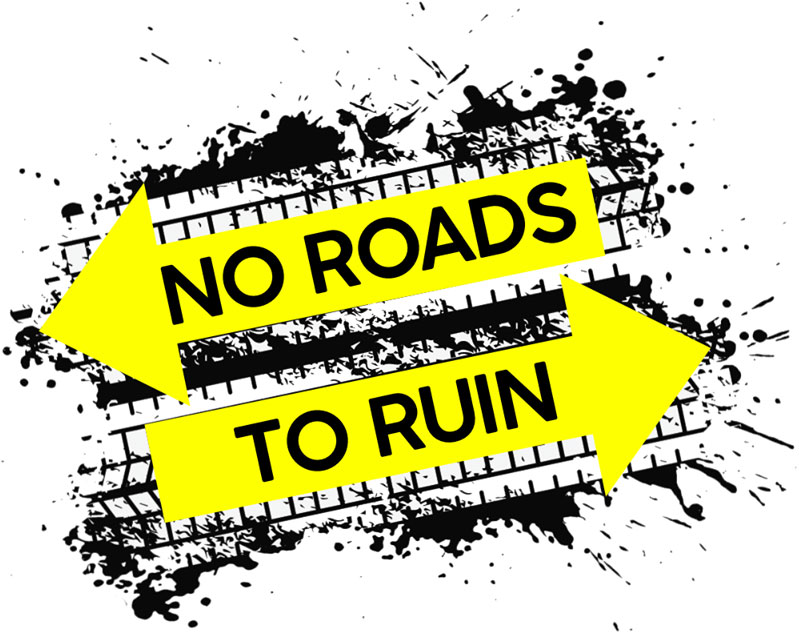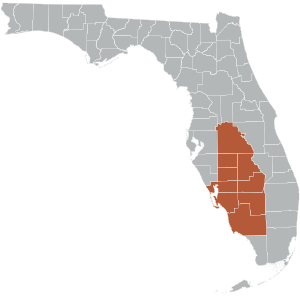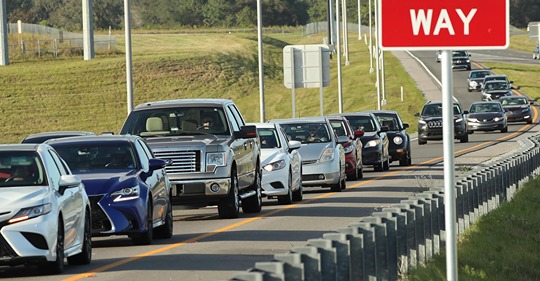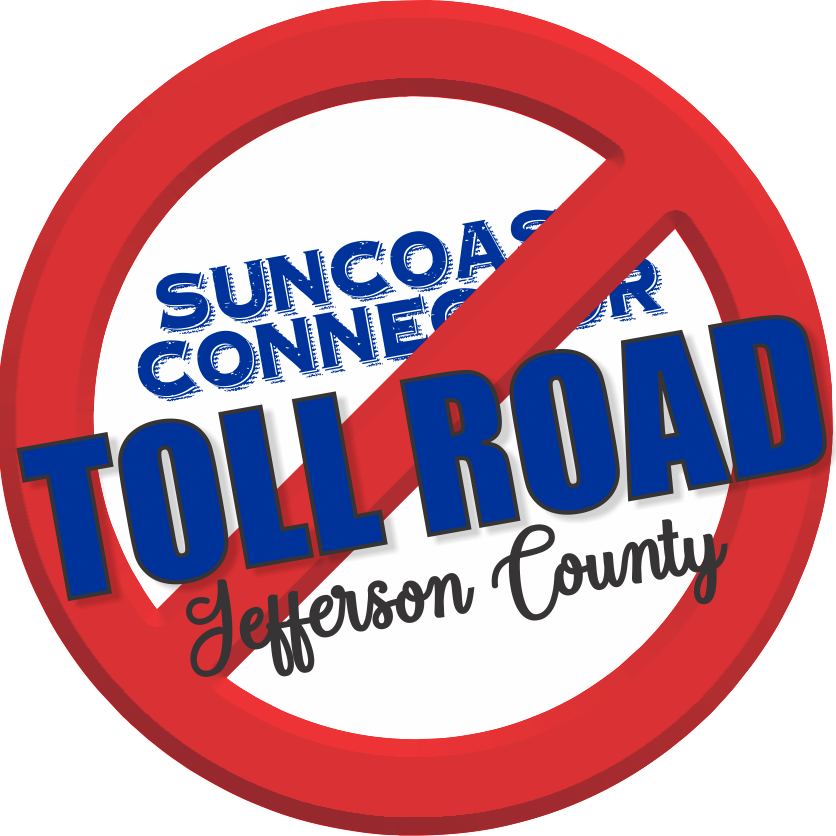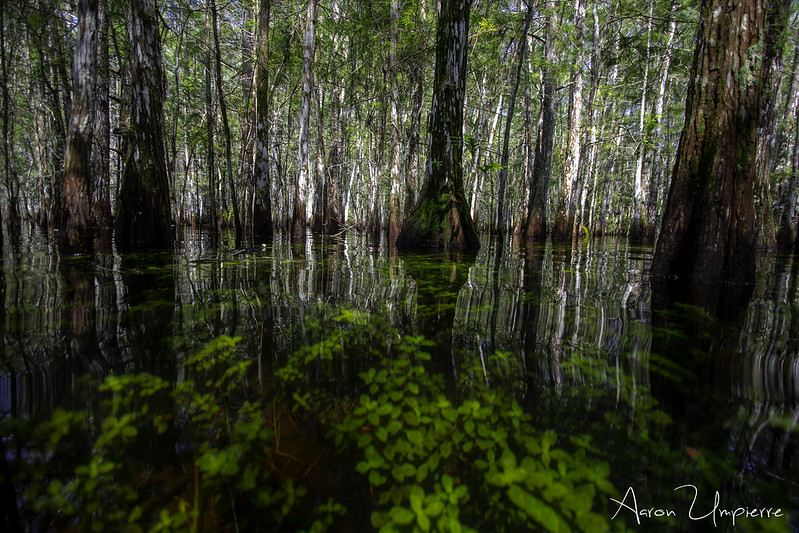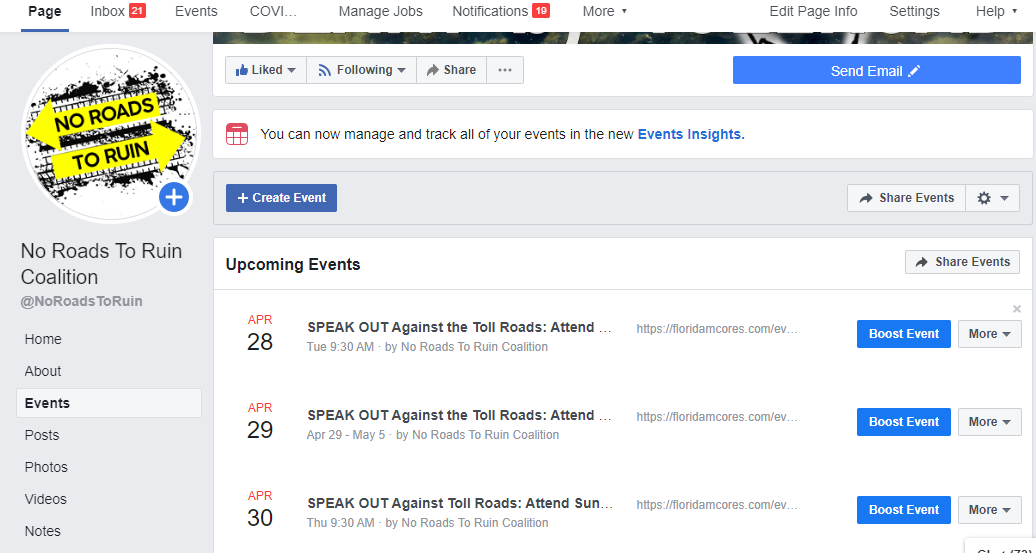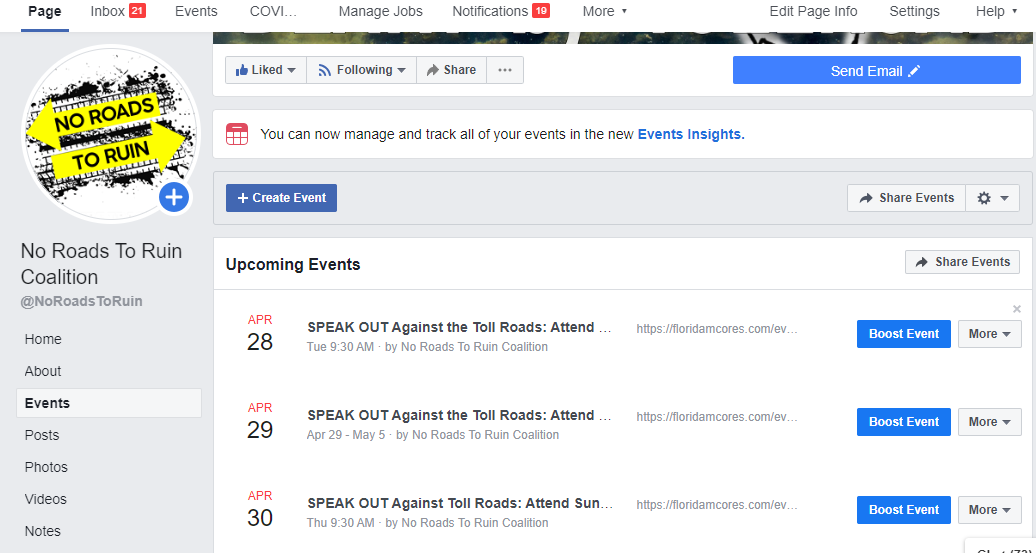Skepticism over proposed toll road between Orlando, Naples dominates webinar
Skepticism over proposed toll road between Orlando, Naples dominates webinar
By Chad Gillis
Fort Myers News-Press
State transportation planners and consultants pitched a second highway in as many days, and they got a similar response both times: many in the public simply don't want any of the three proposed toll roads to cut through different sections of Florida.
Excerpt:
Many at the meeting said they were concerned about this Southwest connector because it would cut through the heart of the Florida panther breeding population.
Eugene Kelly with the Florida Native Plant Society said the webinar felt like a justification for building the roads.
"I've grown frustrated and I feel like I'm just repeating myself," Kelly said. "I just can't understand why it feels like the burden of proof is on the public."
Planned M-CORES highways solve problem that isn’t there | Commentary
Planned M-CORES highways solve problem that isn’t there | Commentary
By Tim Jackson | Orlando Sentinel
“The “result” of this “solution” has primarily been sprawling low-density development marching into our countryside, replacing farms and open space. It also has resulted in a population that is unhappy with their lifestyle — fighting traffic congestion every time they need to go anywhere, putting up with overcrowded schools, and experiencing the loss of open space, wildlife, and clean lakes, rivers, lagoons, streams, and springs. Another result of this “solution” has been the loss of farmland and rural communities which, ironically, is the opposite result from another supposed purpose of the Multi-use Corridors of Regional Economic Significance (M-CORES) — to bring economic development to Florida’s rural communities.” - Tim Jackson
Watch: Jefferson County Against the Toll Roads Video Series
Please take a few minutes to listen to these local perspectives and concerns of citizens from Jefferson County who have been leading a local fight to oppose the toll roads to nowhere to maintain their rural quality of life, preserve their cultural heritage, and prevent the development of tollway that could cut right through the historic downtown of Monticello. This video was put together through the collaborative efforts of Citizens for Responsible Government of Jefferson County, the Jefferson Progress & Preservation Committee, and Tall Timbers Research Station.
Part 1 of 3:
https://youtu.be/FQVgTjaAEoE
Part 2 of 3:
https://youtu.be/vGlT4wR6ffo
Part 3 of 3:
https://youtu.be/I9zJiBSDDfE
Guest opinion: Restarting economy by weakening water quality, growth management a bad idea
Guest opinion: Restarting economy by weakening water quality, growth management a bad idea
Ryan Orgera and Rob Moher, Special to The News-PressPublished 6:00 a.m. ET May 10, 2020
An important column on water quality from our partners at the Sanibel Captiva Conservation Foundation and the Conservancy of Southwest Florida says the effort to fast-track permits to destroy wetlands “is particularly concerning as we face three massive toll roads through some of our state’s most important wetlands. These roads, if realized, will have terrible effects on our water quality.”
#NoRoadsToRuin #SaveOurWetlands
Levy County Commissioner's "No Build" Resolution
"In order to protect Levy County’s environmental assets, preservation areas providing habitat for plants and wildlife, rural lands, agriculture industry and the quality of life of our citizens, the Boards hereby support adoption and enactment of a “No Build” option…"
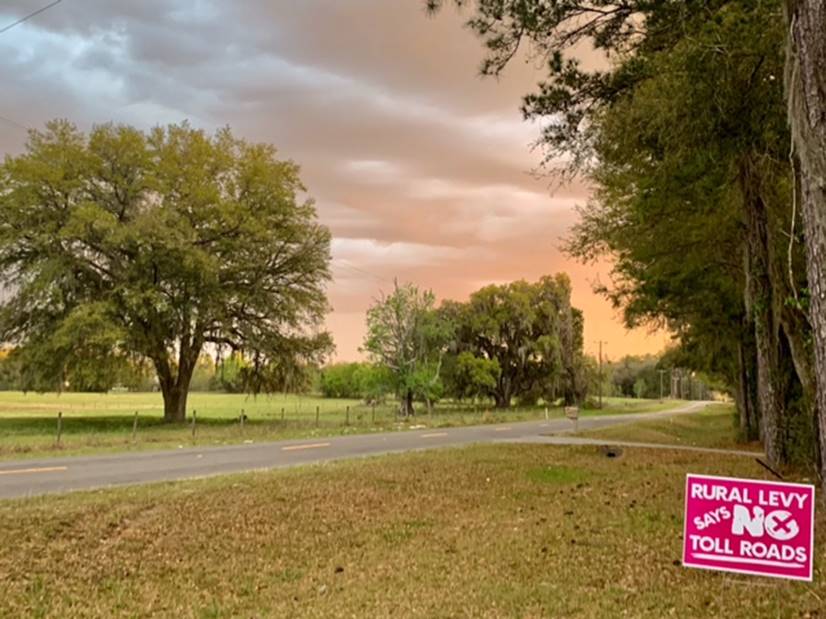
Levy County has made their position clear with a "No Build" resolution from their County Commissioners.
Opinion: 1000 Friends of FL
With COVID-19-related budget cuts looming, Florida should kill budget-busting road projects
Publication: Sun Sentinal
Though the ink is barely dry on the budget that the Florida Legislature approved last month, it’s increasingly apparent that an extreme makeover will be needed to respond to the shutdown of major sectors of the Sunshine State’s economy from the COVID-19 pandemic. Even with billions of dollars in federal aid on the way, and billions in state reserves, cuts in state spending may be unavoidable to make up for billions more in lost tax revenue.
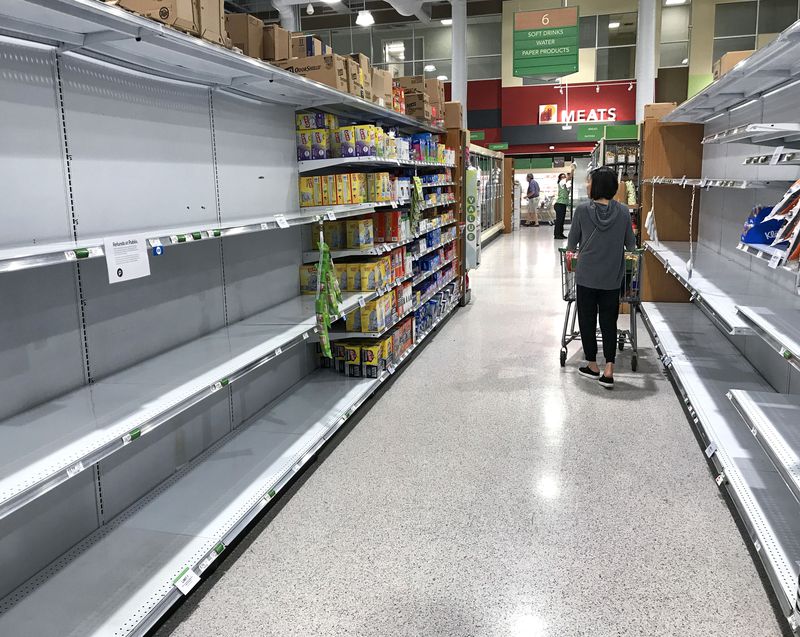
There’s an obvious place to start cutting: M-CORES, the budget-busting proposal to build three roads to nowhere through rural western Florida.
Our state is careening toward a budget crisis. Sales tax accounts for almost 80 percent of Florida’s general revenue, the primary funding source for core services like education and health care. About a fifth of sales tax comes from hospitality and tourism, the areas hit hardest by closures and social distancing. And they are just the leading edge of the economic shockwave that could vaporize billions from tax collections.
The COVID-19 relief package passed by Congress in late March could direct more than $8 billion to Florida, according to an analysis from the budget watchdogs at Florida TaxWatch. But even a check that big from Uncle Sam, combined with the state’s $3.8 billion in reserves, won’t be enough to avoid a looming budget deficit, according to TaxWatch.
Jefferson County
Jefferson County business owners and community leaders have launched a Citizens Referendum.
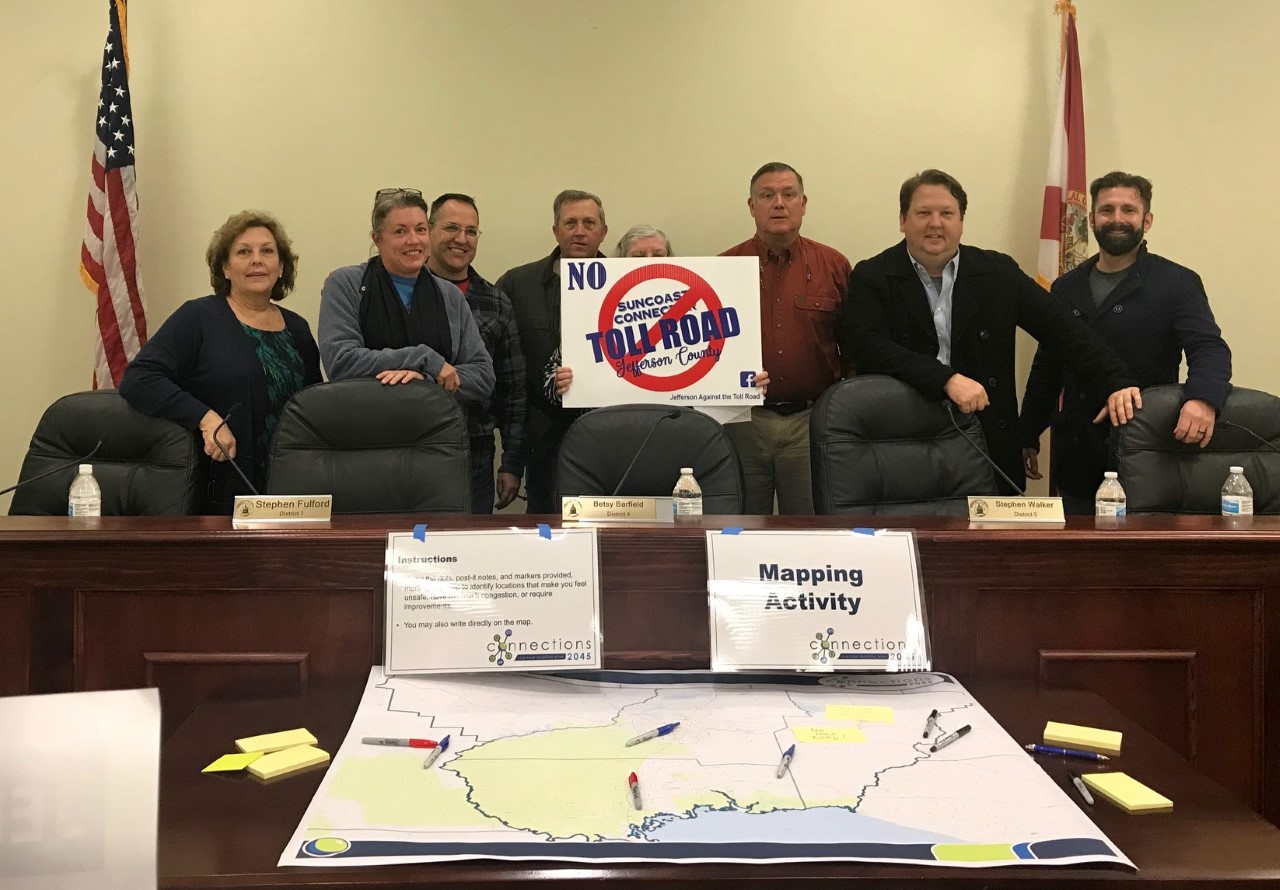
Check out their Jefferson Against the Toll Road Facebook page too!
Editorial: End Toll Road Boondoggle
Publication: The Ledger
The impact of COVID-19 could have Florida’s economy reeling for a long time to come. Tax revenue will be down. The state budget will be stretched to the point of snapping. Hard — even cruel — decisions will be made.
Here’s what Floridians don’t need now: Three brand-new and largely unnecessary toll roads cutting through rural communities and severing critical wildlife corridors, sucking hundreds of millions of dollars (that will likely never be recouped in toll revenue) from state coffers. It’s a project that’s looking more and more like a gift to the state’s well-heeled road-building industry and a few fortunate landowners — an ill-considered use of state funds in good times, but an utter travesty considering Florida’s new fiscal reality.
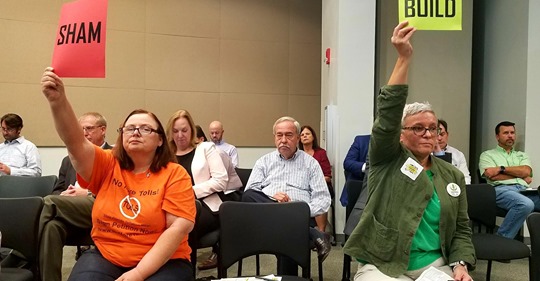
The “toll roads to nowhere,” as many call them, were a pet project of outgoing Senate President Bill Galvano, R-Bradenton. His influence, and a frenzy of last-minute dealmaking, got the roads approved in the waning hours of the 2019 legislative session. They include a 150-mile extension of the Suncoast Parkway, from Citrus County to the Georgia state line, as much as 150 more miles of road from Polk County to the Gulf Coast and a 30-mile extension of the Florida Turnpike to connect it to the Suncoast Parkway.
It’s hard to find anyone besides the handful of very powerful proponents who thinks the roads are a good idea. Environmental and smart-growth groups are still nearly unanimous in their opposition, and last week, the Levy County Commission approved a resolution objecting to two of the roads expected to cut through the county, as reported by Craig Pittman of the Florida Phoenix.
So far, Pittman reports, the coronavirus crisis seems to have had only one impact on the road projects: Three task forces, one on each road, have been given an extra month and a half to submit their reports.There are already signs that some members of the task forces feel the skids are greased, if a January letter from the state’s leading smart-growth group, 1,000 Friends of Florida, is any indication. In the letter, 1,000 Friends’ board chair Susan L. Trevarthen says each task force is being discouraged from asking whether the roads are really needed, and denied data needed to evaluate the roads’ economic feasibility.
FL Phoenix: Does Florida still need that trio of billion-dollar toll roads?
Florida’s controversial new toll roads hit a potential roadblock this week.
Two of them are supposed to cut through rural Levy County, near Ocala. But Levy commissioners voted 3-2 on Tuesday to say they do not want them — primarily because of the development they would bring.
“I don’t want to see Levy County become another Tampa Bay, and that’s what’s going to happen if we don’t stand up and say no,” said Levy commissioner Lilly Rooks, who brought up the resolution.
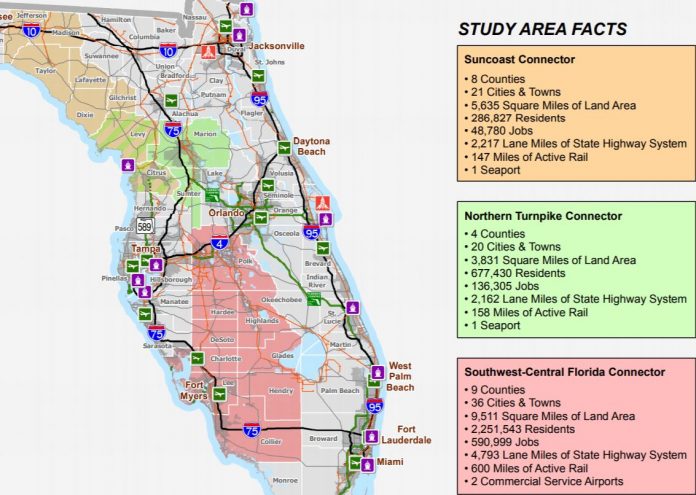
The vote wasn’t as close as it seems. The two commissioners who voted against it said they agree with Rooks’ position, but believed the county should wait to take such a stand until later this year. The majority didn’t want to wait because they believe the governor and Legislature were rushing everything through to start construction in two years.
“The people of this county do not want this road. They have voiced their opinion. I’m here to speak for them because there’s a lot of opposition,” Commissioner Mike Joyner said.
“’No-build’ is always an option and all proposed transportation projects must ultimately meet financial and environmental feasibility,” Department of Transportation spokeswoman Beth Frady said. The department “appreciates the input” from Levy County, she said.
“There’s really no strong appetite for these roads”
Florida already has more toll road miles than any other state. But with the coronavirus pandemic keeping cars and trucks parked, the state’s toll roads are producing far less revenue than they brought in last year. (DOT’s turnpike officials did not respond to a request for exact figures.)
There’s no telling when – or if — traffic will return to the level it was at before the pandemic struck, especially if the nation falls into a recession. The sudden emptiness of Florida’s once-packed roadways has raised the question: Does Florida still need that trio of billion-dollar toll roads that Gov. Ron DeSantis approved last year?
“There’s really no strong appetite for these roads,” said Charles Lee of Audubon Florida, who sits on one of the advisory groups appointed to study the toll roads.
Lee questioned whether the loss of toll revenue will make it impossible for the state to borrow enough money to build the new highways without cutting into money for maintenance of the existing toll road system.
